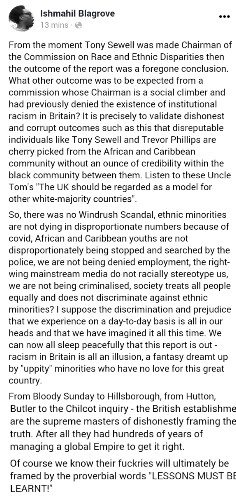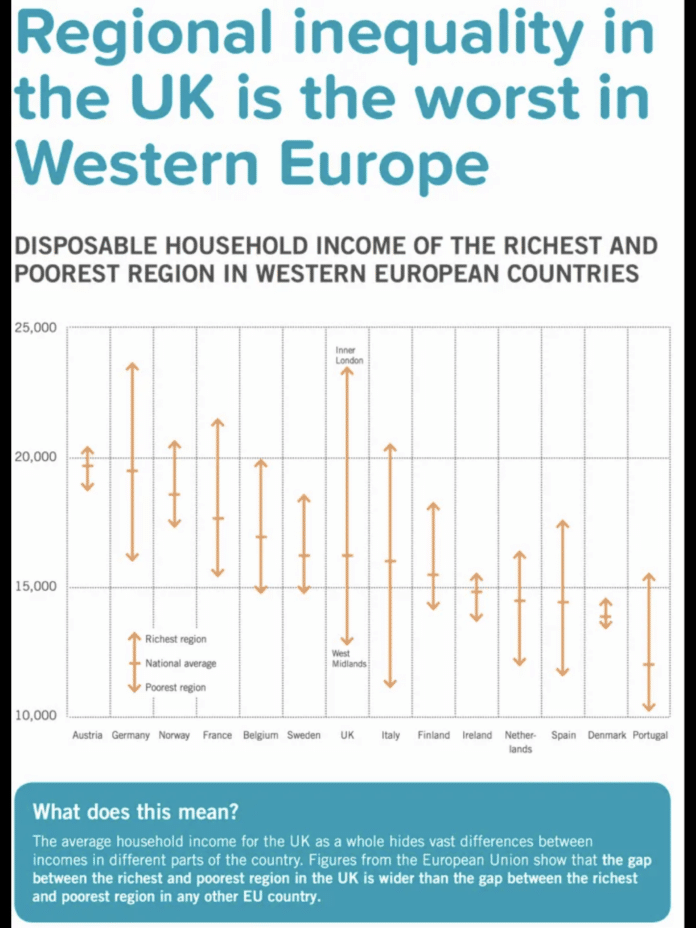A government-commissioned review has suggested that the UK, while not yet a “post-racial society,” should be viewed as a potential model for other predominantly white nations.
Conducted by the independent Commission on Race and Ethnic Disparities, established by Prime Minister Boris Johnson in response to the Black Lives Matter protests of the previous summer, the 264-page report, to be published on Wednesday, delves into inequality across Britain.
Among its recommendations are proposals for longer school days, a shift away from unconscious bias training, and the discontinuation of the BAME (Black, Asian, and Minority Ethnic) acronym. The report also contends that issues of race and racism are diminishing in significance, with disparities sometimes being unrelated to race.
According to the commission, many ethnic minority children are performing as well as, if not better than, their white peers in education, leading to more diverse workplaces.
Following the widespread protests spurred by the killing of George Floyd in the US, the commission was tasked with outlining a constructive agenda for change. Over ten members examined disparities in education, employment, criminal justice, and health.
Among the report’s recommendations are phased implementation of extended school hours, prioritising disadvantaged areas in the wake of the pandemic’s educational impact, and improved access to quality career guidance for underprivileged students.
Commission chair Tony Sewell, speaking prior to the report’s release, contended that while racism exists, there’s no proof of institutional racism in Britain. He suggested that the term “institutional racism” is often misused to describe individual acts of prejudice.
While acknowledging progress, Kunle Olulode, director of Voice4Change England and a commission member, highlighted areas requiring further attention.
Housing Secretary Robert Jenrick acknowledged persistent inequalities but noted progress, particularly in education and employment. However, Labour’s Lisa Nandy urged action rather than denial of existing problems.
The report argues against the continued use of the BAME acronym and stresses that Britain, while showcasing ethnic minority success stories, still grapples with racism, especially online.
It notes education as a major success for ethnic minorities, with groups like Indian, Bangladeshi, and Black African pupils often outperforming their white counterparts in GCSE exams. However, it also reveals a widening gap in educational achievement between Black Africans and Black Caribbeans.
While acknowledging disparities, the report contends that not all differences can be attributed to racism. It points out shrinking pay gaps and increasing diversity in elite professions.
Commission chair Tony Sewell, a charity leader and education consultant who previously collaborated with Prime Minister Johnson, was defended by Downing Street despite past comments on the evidence of institutional racism.
Given the number of reports and their conclusions we should be asking ‘isn’t this yet more hot air with a government that worships inequality and unfairness?’
As the BBC suggests multiple reports but what have we got to show for it?
What work has already been done on racial inequality in the UK?
- The Race Disparity Audit, published by then Prime Minister Theresa May in 2017, showed inequalities between ethnicities in educational attainment, health, employment and treatment by police and the courts
- The 2017 Lammy Review found evidence of bias and discrimination against people from ethnic minority backgrounds in the justice system in England and Wales
- Also in 2017, the McGregor-Smith Review of race in the workplace found people from black and minority ethnic backgrounds were still disadvantaged at work and faced lower employment rates than their white counterparts
- An independent review of the Windrush scandal, published in March, found the Home Office showed “institutional ignorance and thoughtlessness towards the issue of race”.
The public response:

Perhaps it is time for something much more radical on ethnic/racial inequality. Perhaps we should actually look like we mean it:
Let us know in the comments what you would do to make the UK a beacon for equality.
Jason Cridland
PLEASE SUPPORT US FOR JUST £2 A MONTH







